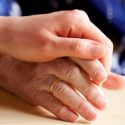The Impact of Evidence-Based Practice in Nursing Care
The field of nursing care is in a constant state of evolution and progress. New approaches and strategies have contributed to countless new trends that have improved healthcare by a considerable margin. Researchers are constantly striving to stay up-to-date on the latest evidence-based practices that have been proven effective.
These trends aim toward the betterment of patient care and healthcare centers. One of these trends is evidence-based practice. Although it is not a new concept, new research keeps adding new elements to this approach. It is further promoted by professionals who have experienced the success of this practice in healthcare.
What is Evidence-Based Practice?
Evidence-based practice (EBP) is a groundbreaking approach that relies on scientifically proven methods to improve healthcare. It constantly utilizes peer research, trial-and-error testing, professional expertise, and patient feedback to innovate healthcare practices.
Evidence-based practice does not rely on one-off solutions but rather advocates incorporating existing research into the practice of healthcare delivery. This approach has been widely adopted in nursing care because it provides consistent, quality care with measurable results.
How do Nurses Implement Evidence-Based Practice?
Nurses are quickly embracing evidence-based practice, which has become an integral part of the nursing curriculum at both the bachelor’s and master’s levels. This progressive approach enhances the quality of care and empowers nurses with the latest knowledge and skills to make informed decisions in their practice.
The institutes in the US that offer online nursing programs focus on evidence-based approaches and provide detailed guidelines for nurses to practice safely and effectively.
Nurses are now trained to use scientific data and critical thinking to assess their patients accurately. There are five elements of evidence-based practice in nursing care. These elements are as follows:
1. Ask: Know which questions to ask your patient. When you ask clear and relevant questions regarding patient symptoms, you can make an informed decision regarding the best treatment. Set an ultimate goal regarding the treatment approach to help the patient recover.
2. Acquire: Research relevant information regarding the medical condition and the treatment options. Gather evidence from scientific research to make an informed decision.
3. Appraise: Once enough data and evidence are collected, go through the resources to find the most relevant approach. Determine if the information collected is valid and applicable.
4. Apply: Use your expertise and critical thinking skills to apply your newly appraised knowledge to practice. Carry out this step in a way that ensures optimal quality of healthcare provided to the patient.
5. Assess: Determine the success rate of your EBP Intervention. Assess the strengths and weaknesses based on the patient’s outcome. Decide if this approach can be applied to other patients as well.
Nurses experience various cases every day where evidence-based practice is applicable. Here are a few examples of where nurses apply evidence-based practice (EBP):
Use of Oxygen for Patients with Chronic Obstructive Pulmonary Disorder (COPD)
Patients with COPD can live a better life by long-term administration of supplemented oxygen. This was studied and proven by scientific research. Nurses consider this research before recommending a therapy option for patients with COPD.
Educating patients regarding safety protocols
Safety protocols are not just for healthcare facilities or organizations. Nurses can now implement EBP to educate patients on how to stay safe at home to reduce health concerns. These protocols involve educating people to avoid injuries and contagious infections that can risk their health.
Assessing the patients before and after medication
Medication is now strictly monitored based on the patient’s medical history instead of one medication for one disease. Now, nurses utilize EBP and ask patients about their allergies, medical conditions, medication they might be taking, etc. After careful consideration, they recommend a medicine. After administration of the medicine, the patient is kept under observation to assess any adverse reactions from the given medication.
Recommending a balanced diet for children with gastrointestinal problems
Doctors used to recommend a BRAT diet for children with gastrointestinal problems. This diet included bananas, rice, applesauce, and toast. However, research indicates that such a diet is low in nutrients, hence not recommended for growing children. The evidence-based practice allowed the nurses to recommend hydration as a priority and educate the parents regarding a balanced diet.
How does Evidence-Based Practice Impact Nursing Care?
Evidence-based practice has numerous positive impacts on nursing care. This approach benefits both patients and nurses alike. Here are a few ways EBP has transformed nursing care for good:
1. Better patient outcomes
Nurses who utilize EBP have a good rapport with the patients and their families. They ask clear questions and listen attentively to the patient. Good communication leads to a better understanding of the health condition of the patient, which in turn results in better patient care
2. Encourage constant learning
Nurses are constantly encouraged to keep up with the current trends in healthcare. To better utilize the EBP intervention, nurses must be current with the research. They also need to acquire new skills occasionally and strive for perfection. The constant learning phase allows nurses to grasp new concepts quickly and apply them in practice efficiently.
3. Improves critical thinking skills
Acquiring new research data is not enough for the evidence-based approach. Nurses need to connect the evidence with the patient’s health condition. For this, they need to think outside the box and see things from a different perspective. This is where critical thinking skills are utilized and tested. Evidence-based practice frequently puts these skills to use and polishes them even further.
4. Promotes research in nursing care
Research is not only reserved for researchers. The evidence-based practice encourages nurses to improve their research skills to gather accurate scientific evidence. This helps them keep up with the latest research in the field while simultaneously teaching them to connect one research with another.
5. Better risk management
With extensive research and brainstorming, nurses fully know the risk involved in carrying out a particular therapy. When nurses know minute details that can compromise the patient’s safety, they can help plan contingencies for the worst-case scenario. Nurses who utilize EBP are fully equipped to assess all the possible risks. This aids them in creating policies and management strategies to minimize or avoid the risk altogether.
The Bottom line
Evidence-based practice constantly challenges traditional medicine. It challenges the old ways and suggests new and better approaches to treating a medical condition. By encouraging research and critical thinking among nurses, EBP has now gained immense popularity. Nurses now utilize this approach to create a long-lasting impact on their careers and patient care.



